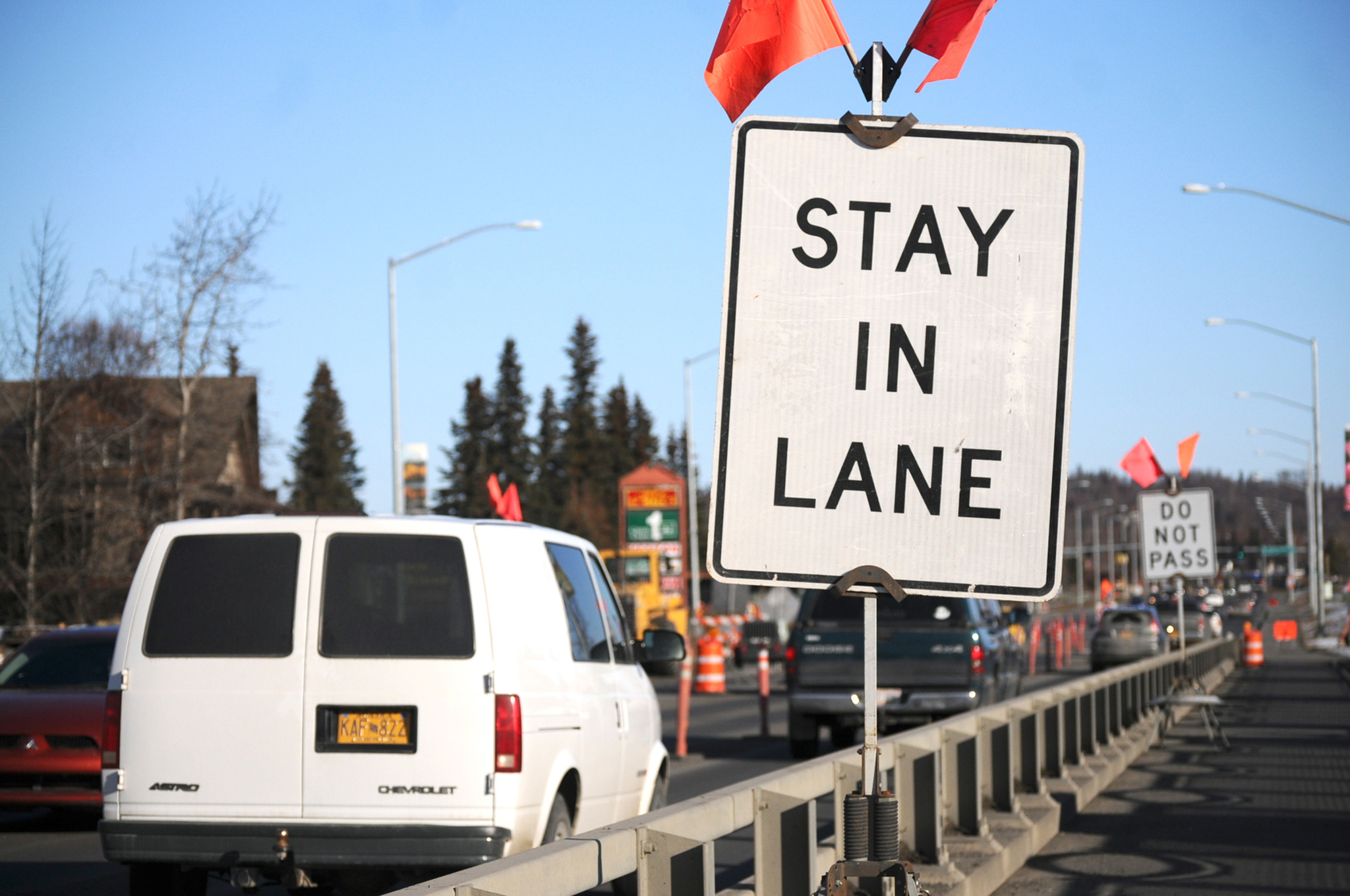To help bridge some of the state’s $3 billion budget gap, Gov. Bill Walker has proposed a bill that would triple the motor fuel tax statewide more than two years.
The tax charged on fuel varies by type. Right now, drivers pay 8 cents per gallon of gasoline at the pump. Aviation users pay 4.7 cents per gallon, marine users pay 5 cents per gallon and all other aviation users pay 3.2 cents gallon. If the bill is passed, the tax amounts for each fuel type will double on July 1, 2017 and will rise another 50 percent again on July 1, 2018, making the final increase 24 cents per gallon for drivers, 14.1 cents per gallon for aviation gasoline, 15 cents per gallon for marine fuel and 9.6 cents per gallon for all other aviation fuel types, according to the bill.
The increase would bring Alaska more in line with other states in the union. Currently, Alaska has the lowest total motor fuel tax in the country, with the total after all taxes and fees coming in at 11.3 cents per gallon, according to the nonprofit research group The Tax Foundation. The next lowest is New Jersey, with a total per-gallon tax of 14.5 cents, according to the Tax Foundation.
Walker wrote in his transmittal letter to Senate President Pete Kelly and Speaker of the House Bryce Edgmon that Alaska would be close to the national average after the increase.
“While the proposed tax increase may appear to represent a significant increase, the tax rates on motor fuel sold or transferred within the state have not been raised in many years; for example, the tax on highway fuel has remained at eight cents a gallon since 1970,” the letter states. “This bill would bring Alaska’s tax rate on highway fuel very close to the current national average of 25 cents a gallon.”
The bill also establishes specific funds for how the taxes would be used, rather than going into the Unrestricted General Fund. Motor fuel taxes would be used for highway maintenance, aviation fuel taxes would be used for airport maintenance and marine fuel taxes would be used to maintain the Alaska Marine Highway System.
The tax increase would bring in approximately $40.3 million in additional revenue for the state government in its first year and $80.1 million the second year, with small increases in the following years, according to the fiscal note attached to the bill.
Walker proposed a similar bill in his FY 2017 budget, but the Legislature failed to pass it in the 2016 session. This year, Walker included the motor fuel tax increase in a separate bill as part of his overall fiscal plan for the state, which also includes cutting state government services and a plan to use some of the Permanent Fund earnings to run government.
Last year, the Alaska Trucking Association opposed the motor fuel tax increase because there were no specific guidelines for how the funds would be used, said Aves Thompson, the executive director of the trucking association, in testimony to the Senate Transportation Committee on Thursday. This time around, the group supports the increase as part of a sustainable fiscal plan, he said.
“The Alaska Trucking Association has long supported a fuel tax increase if the funds could be dedicated to transportation needs,” he said. “We realize that this won’t happen in this bill but feel strongly that we need to help resolve the fiscal issues by doing our part … We support this tax increase as part of a larger package.”
One change he suggested was to delay the stepped increase from July 1, 2018 to 2019, allowing trucking companies more time to incorporate the tax increase into their rate schedules, he said.
Shipping company UPS Inc. also supports the motor fuel tax increase but opposes the jet fuel tax increase portion of the bill. UPS already pays landing fees at airports in the state, and a jet fuel tax increase would go to fund smaller airports around the state the company doesn’t use, wrote UPS Vice President of Public Affairs Nick D’Andrea in a letter to the governor.
If the taxes are increased too much, it could backfire the state by incentivizing companies to bypass Anchorage altogether, taking their landing fees with them, he said in testimony to the Senate Transportation Committee. The Alaska International Airport System is largely self-supporting with its landing fees, but that could no longer be the case if fewer flights land in the state, he said.
“If for some reason cargo carriers pull out of the international system, there’s less dollars and the international system may not be able to be self-supported and therefore general funds may be required to pay into the system,” he said.
Delta Airlines opposes the jet fuel increase for the same reason, outlined in a joint letter signed by D’Andrea and Delta State and Local Government Affairs Managing Director Dana Debel. Alaska Airlines opposes the jet fuel increase as well, saying the company would be disproportionately impacted because of its extensive operations in the state.
The Alaska Air Carriers Association, a membership group representing a number of Alaska aviation companies, suggested the Legislature remove the tax exemption for flights bound for international destinations and international-origin flights bound for other domestic destinations. The Aviation Advisory Board, a citizen board under the umbrella of DOT, supports the bill because it could provide more resources for the rural aviation system, according to a Jan. 25 resolution from the board.
Reach Elizabeth Earl at elizabeth.earl@peninsulaclarion.com.

